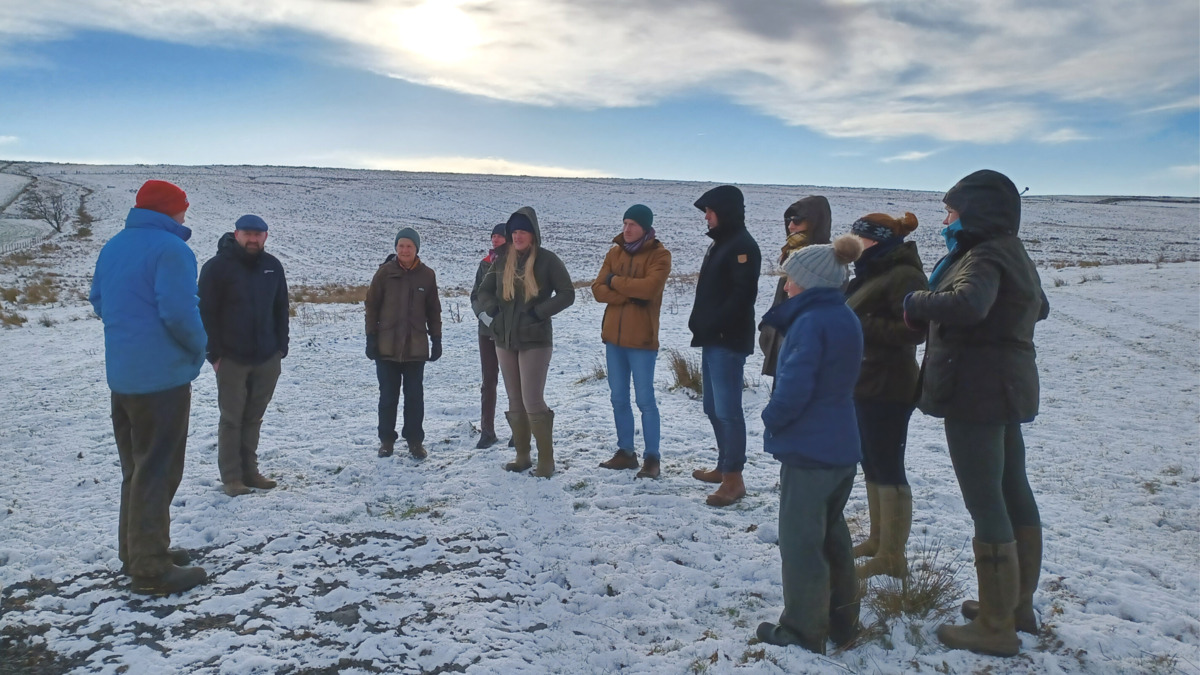Deputy director Siôn McGeever and and his colleague Alastair Locke visited three farms in Northumberland National Park, the North Pennines AONB and the Lake District National Park, to hear first-hand from farmers about what it is like to farm in a protected landscape, the challenges faced and how schemes such as FiPL have helped.
Wide ranging issues
During the discussions, members raised a number of different issues:
- While for many of them farming in a National Park or AONB has become a way of life, it is increasingly difficult to secure an income
- TThe extent to which they are reliant on environmental payments – given that across the region up to 80% of farm income comes from direct support – and the impact of BPS reductions with no clear trajectory on how this income will be replaced;
- The lack of opportunity to diversify.
- Talking about FiPL, they said they found it useful to be able to apply for capital grants and liked the fact that decisions were made by a panel that included farmer representatives.
- They also welcomed the support received from the Park authorities to complete applications, but reiterated the challenge of getting three quotes in areas with a low number of businesses that can provide the services.
- The issue of unexpected costs – for example needing an archaeologist on-hand for projects on Hadrian’s Wall – was also discussed.
Recognition that farmers need sustainable businesses
Speaking afterwards, regional environment adviser, James Copeland, said it had been a very useful two days, with a lot crammed in.
“It was good to hear the Defra team acknowledge that farmers are needed in such landscapes to continue managing their ‘uniqueness’,” he said. “They also reassured members that while more is being asked of farmers, there is the recognition that they also need sustainable businesses.”
